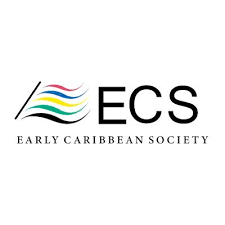I’m on day 50 or so of parenthood – I’m on family leave from work. I had a rough delivery and hard recovery with postpartum complications. Now I’m feeling better physically and able to handle some intellectual tasks when the baby is sleeping or chirping to herself in the bassinet.
In an attempt to brush off my scholarly chops, I perused the intros to a few Oxbridge travel-writing anthologies. I recognized much I’ve absorbed over the past decade reading on this topic, but I also re-realized vast swaths of ignorance. Of texts, authors, historical facts, and so forth. It’s downright humiliating, though it’s fortunately a humiliation I can suffer in the privacy of my own maternal convalescence.
Of course, as is my nature, I began curating a list of sources—primary and secondary—that I’d need to read to help reckon with the gaps in my knowledge, but I also began to parse what about travel writing per se is different from the area I’ve actually been studying and writing about, which is tourism. And perhaps in parsing this, I began to forgive myself for not actually knowing All The Things. I don’t actually study travel-writing when it comes down to it. I’ve always sort of known this, but this is the first time I’ve really articulated what this means. It’s not that I’m not interested in what people write about while they’ve toured around, it’s that I’m more interested in what they have written about touring around – the boat ride, the way of transporting luggage, fellow tourists, how the trip affects how they feel about home, and especially what they think about tourism. It’s a difference between focusing on the subject of the trip rather than the object. “Travel writing” usually featurees both types of observations – those which are about the trip and those which are about the mechanics of travel or maybe rather meta-reflections on tourism.
In perusing these anthologies, I have come to the conclusion that I’d really benefit from studying medieval pilgrimages and the Crusades. And I need to learn more about the tourists that put graffiti on the Pyramids in Egypt in 1500 BCE – my archaeologist friend from graduate school says to consult The Graffiti of Pharaonic Egypt by Alexander Peden for information. Again – so many directions to go in here. Sometimes I fantasize about what I would write if I had more time to write: a book on medieval tourism and its relationship to (future) empire. Also, something about the ironic relationship between the purported religious purposes of the Crusades and the fact that the journey itself was rumored to be one of dissipation and, well, sex. This is supposedly why priests etc. would warn against the lure of the curiositas.
I’ve much to add to my “Uncomprehensive Travel-Writing Database” after this brief trip through the anthologies. As ever, academic scholarship proves humbling and intimidating. I do feel recharged and somewhat validated though to discover that for whatever reason, I remain compelled by the topic I landed upon in my senior year of college.
Books to peruse or re-peruse:
- Finucane’s Miracles and Pilgrims, 1977
- Zacher’s Curiosity and Pilgrimage, 1976
- Batten’s Pleasurable Instruction: Form and Convention in Eighteenth-Century Travel Literature, 1978
- Clifford’s Routes: Travel and Translation in the Late Twentieth Century, 1997
- Munter and Grose, eds., Englishmen Abroad, 1986
- Korte’s English Travel Writing from Pilgrimages to Postcolonial Explorations, 2000
- Stafford’s Voyage into Substance, 1984
- Leask’s Curiosity and the Aesthetics of Travel Writing, 2002
- Ashcroft, Griffiths, & Tiffin’s The Empire Writes Back, 1989
- Pratt’s Travel Writing and Transculturation, 1992
- Holland and Huggan’s Tourists with Typewriters, 2000




